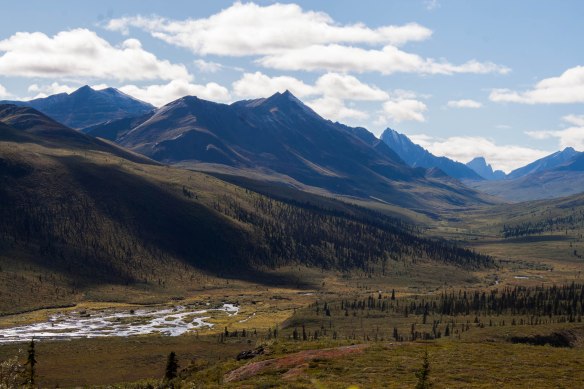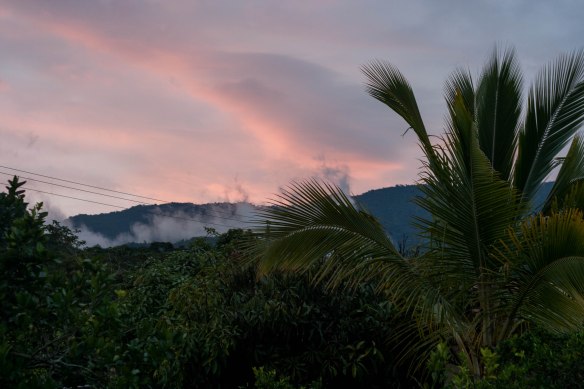By Anna Vogt, a service worker in MCC Colombia currently working with Justapaz, a Mennonite organization working for justice, peace and non-violent action in Colombia. Originally posted at: thellamadiaries.com
Before coming to Colombia, I spent a summer working with an Indigenous women’s group in the Yukon. I thought I knew things, but one of the greatest lessons I learnt was how little I actually did. As I researched and read, I learnt more deeply about the realities of missing and murdered Indigenous women, colonialism, growing prison populations and intergenerational trauma from residential schools. Yet it was through conversations over coffee about what I was reading, with the women I worked with, that I first really learned about strength and nation building.
Without Indigenous women and their demands for justice and respect for their rights, the Yukon, and Canada as a whole, would be a very different place. From being initiators and founding members of the National Indian Brotherhood (the precursor of the Assembly of First Nations) to travelling to Ottawa to pressure the government to change the Indian Act so that women would not lose their status when married, to helping their sons deal with random police checks and illegal searches, these women were not simply passive victims, but also powerful actors.
When I think of my time so far in Colombia, as I keep writing about, the stories of all of the Colombians that work and resist against power structures, elitism, inequality, violence and yes, also colonization, are always first in my mind. Without, for example, the Indigenous concept of Minga, social movements and protests would not be as rich. Without the determination of women’s coalitions, there would not be the small gender focus that there is at the peace dialogues in Havana. Working and living with people in the midst of complicated situations of conflict and dysfunctional organizations has only helped me to see the agency and determination present.
This weekend marks the closing of the Truth and Reconciliation Commission around residential schools in Canada. In Colombia, while conflict escalates, discussions about historical memory, reconciliation, and the need for a truth commission continue. A couple months ago, I attended a conference on truth commissions in Bogota, hosted by Kofi Anan. One thing he said in his keynote address was especially poignant.
“Truth seeking should, of course, help determine the accountability of individuals. But truth seeking is not only about individual responsibility; it’s also about society, about the state and its institutions. This is the truth that is needed for making changes to the system, learning from past failures so as to prevent future ones.”
In Colombia, even though it is difficult to come to an agreement on solutions, the majority of the population, especially rural, at least recognizes that the current situation is not sustainable and must change. Almost everyone has at least one family member who is a victim of the conflict. Coming to a common narrative about the conflict is complicated but it is also seen as an important step forward.
In contrast, everytime I mention to Colombians that Canada is currently engaged in a truth commission, I am met with looks of incredulity. This shock and unawareness is part of the fundamental misconception that the majority of Canadians hold as well about justice and peace in our own country. This is where the public truth part of the commission is especially important, because our conflict is largely hidden.
The need for truth about the past and the present is not just for those impacted, but for all implicated. In other words, all of us who at one point or another arrived as settlers to an already inhabited land. The truth commission may be ending, but learning about that truth is just beginning. We need education that not only addresses the horrors of residential schools, but also upholds the realities of survival and resistance, from the beginnings of colonization to the present.
Not only does the resistance and denouncement, such as those of Yukon women’s movements, highlight structural failures, they also point a way forward. Just as many Colombian campesinos know what they need: land reform, agricultural policies that favour small farmers, and an end to fumigations, for example, Indigenous people in Canada have very clear answers about where any conversation about reconciliation needs to arrive, based on equality, restored relationships and structural justice.
It is our job to listen, to learn, and to change our narrative and the way we view the other. There may not be quick and easy solutions, but responding to truth is a first step, both in Canada and Colombia. What I have learned has surprised me, both with pain and with hope.



